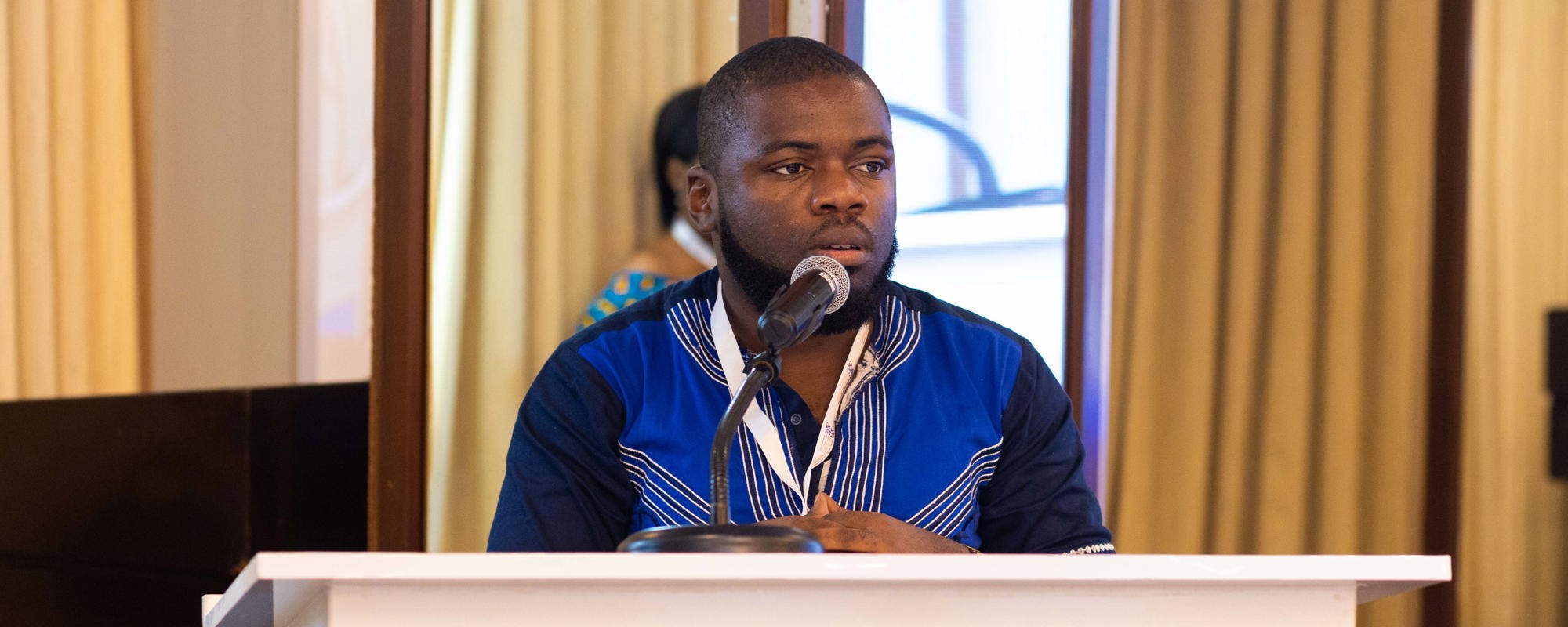

Q&A with Patrick Alain Fouda, Member of the Global Fund Youth Council
Patrick Fouda is a 27-year-old Cameroonian organizer and social entrepreneur who is on the way up. When he was 23, he was inspired to co-found the Cameroon Network of HIV-positive Adolescents and Youth (RECAJ+) to respond to the social inequalities and health problems faced by young people living with HIV in Cameroon. He quickly realized that HIV-positive youth living in Cameroon and elsewhere in French-speaking West and Central Africa were facing the same challenges. He began campaigning to set up a regional coordination network of organizations for young people living with HIV. He still chairs the network today.
Building on that experience, he became a member of the Global Fund Youth Council in 2020. In January 2023, he joined the Global Fund’s Country Coordinating Mechanism in Cameroon as a representative of young people and adolescents. He’s also a member of the regional advisory group for UNESCO’s Our Rights, Our Lives, Our Future (O3) program, which supports comprehensive sex education for teens and young people in sub-Saharan Africa.
What has your experience with HIV been like? Have stigma and discrimination been a part of your experience?
When I was 12 years old, I was affected by paralysis. I could no longer hold a pen or go to school. My parents took me to a neurologist who, while conducting other screening tests, discovered that I was HIV-positive. At the time, the paralysis was my main concern, and I didn’t think about my HIV status very much.
Later, when I was 19, I started to think about my HIV status, and I became close to other young people who were HIV-positive. Many of them were talking about the stigma and discrimination they were facing because of their HIV status. My first reaction was that my paralysis had affected me much more than my HIV status, and I minimized the problems of other young people living with HIV. I’m not comfortable with complaints – my own and those of others. Thanks to a psychosocial counselor, I became more aware. She encouraged me to help others find ways to solve their problems, just as I had to find solutions to my own. Now, my approach is to listen first, then work on empowerment.
Tell us about the stigma and discrimination that young HIV-positive people face in your country, Cameroon.
For adults, there are very few barriers to treatment. Stigma may exist, but adults, including key populations, have access to services. But young people face legal problems that are linked to cultural issues. The law stipulates that the age of consent, or sexual maturity, is 21 years old. This means that young people aged 15-16 who are becoming sexually active don’t have access to the support they need. This is a growing issue in our society. While measures such as the HIV self-testing initiative and other exemptions are being introduced for those aged 18 and over, the authorities are still very traditional. The sexuality of young people is stigmatized, and that has consequences for their health.
What do you think of the older generation who support this policy?
I used to have a reputation for being rude. Back home, young people don’t express themselves openly in front of an elder, but I would speak my mind. Now, I still speak my mind in the presence of elders, but I try to understand them. They were brought up in a different context, with other accepted behaviors. I listen to my elders as much as I try to get them to pay attention to the concerns of young people.
Do these challenges exist in other parts of French-speaking Africa?
In my view, compared with English-speaking Africa, there is very little commitment – particularly from civil society in the broad sense – to supporting HIV-positive young people in French-speaking African countries, which makes it difficult to identify the problems. The level of care for HIV-positive young people in French-speaking Africa is the worst in Africa.
How do you see your role in Cameroon and French-speaking Africa?
I see my role as working within organized structures to support greater mobilization. I’ve already started working on coordinating with a network of associations for youth and teens living with HIV in West and Central Africa. I aim to empower them and support them in their mobilization efforts.
My approach is to empower the young people and the youth groups I support. I tell them: “These are the problems we face. We need to identify them and come up with solutions that we implement by working with outside organizations. But the solutions have to come from us.”
The Global Fund Youth Council provides insight into the needs and challenges youth face in relation to HIV, tuberculosis and malaria and, more broadly, to other aspects of their health and well-being. The council advises the Executive Director, who facilitates the council. Members are primarily under 25 and live with or are affected by HIV, tuberculosis or malaria and reflect the diversity of young people, including key and vulnerable populations.







